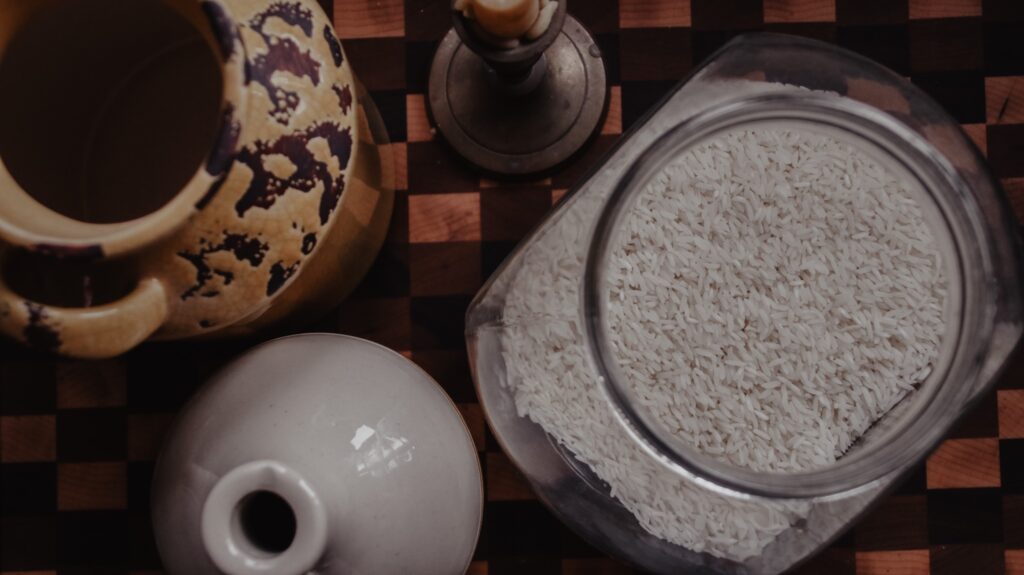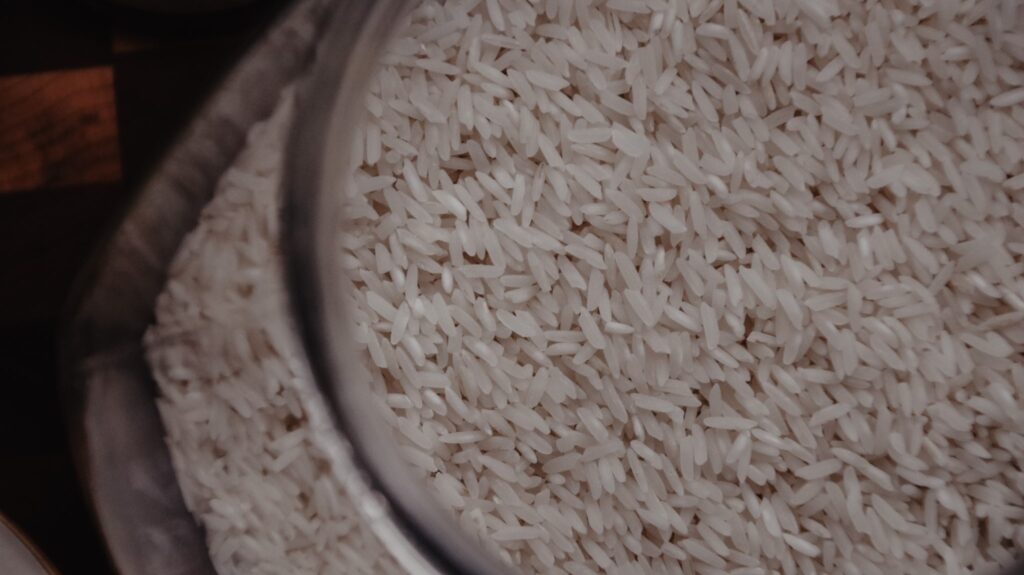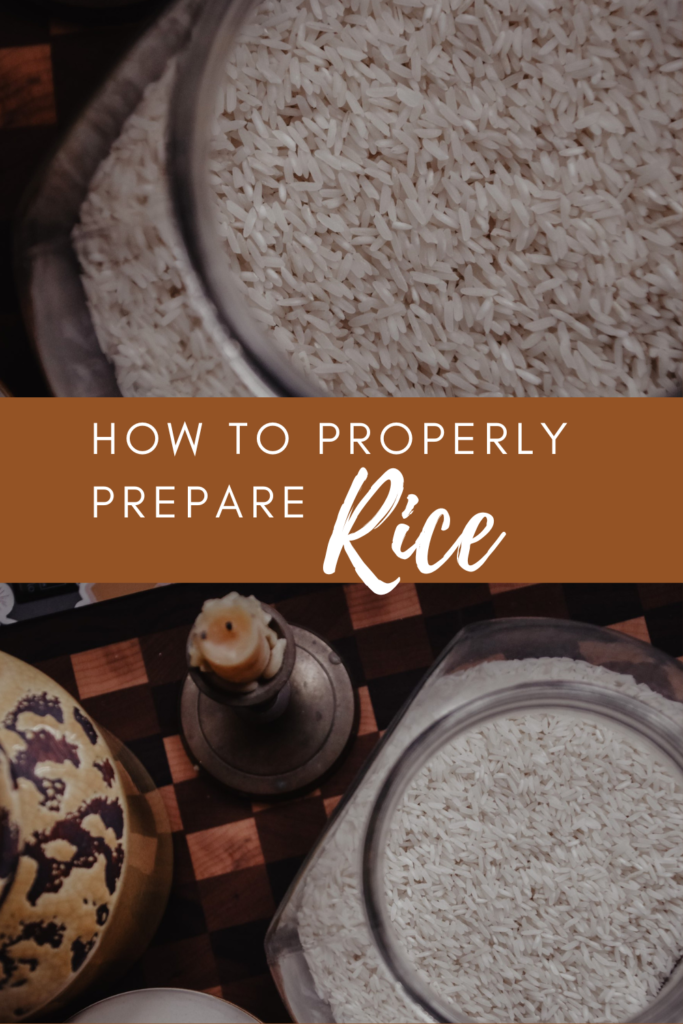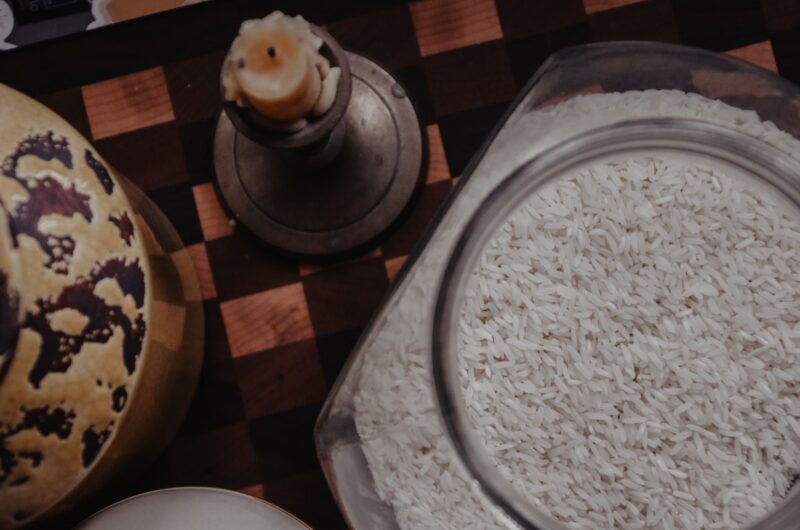How To Properly Prepare Rice. Fermenting rice is an important step to remove the phytic acid and make this grain more digestible.
This post may contain affiliate links. Read my disclosure policy here.
Jump to RecipeIf you have been around these parts for long, you already know my stance on grains.
They must be fermented.
Fermented, fermented, fermented!
This is because our digestive tracts were not designed to break down grains properly.
Traditional cultures and peoples from around the world took great care to ferment their grains before consuming them, and even then they never ate grains in large quantities.
Grains contain phytic acid which binds to key minerals, especially calcium, magnesium, copper, iron, and zinc and prevents their absorption in our guts. Soaking, fermenting, or sprouting the grain before cooking or baking will neutralize the phytic acid, and in turn, releases these nutrients for easy absorption.
Phytic acid is neutralized in as little as 7 hours of soaking in water with small amounts of an acidic medium.
This process allows enzymes, probiotics and other beneficial organisms to not only neutralize the phytic acid, but also to break down complex starches, irritating tannins and the proteins that are hard to digest. This can even lessen some people’s sensitivity or allergic reactions to particular grains. But even if you aren’t allergic to a certain grain, everyone will benefit from the removal of those gut-irritating anti-nutrients.

How To Properly Prepare Rice
- 2 cups rice (any type you use, we use white basmati rice)
- 4 cups of filtered water
- 4 tbsp yogurt, buttermilk, lemon juice, whey or apple cider vinegar
Combine your three ingredients in a pot. I typically always use the apple cider vinegar, but any of the options are just fine.
Leave covered on the counter (not in the refrigerator) for a minimum of 7 hours. Usually I let mine go for 24 hours to get it really good and fermented.
Once you’ve let it sit as long as you wanted to, add some salt and grassfed butter. Set the pot on the stove and bring to a boil. There is no need to strain the water off and add fresh water, I get asked this all the time, you can just boil it in the water it was fermented in. Skim off any foam that forms during the process of bringing it to a boil.
Reduce heat once it’s hit the boiling point and allow it to cook on low until it’s done.
See? Insanely easy.
It just requires a little planning ahead.
Which, I’ll be honest…isn’t my strong suite.

But I’m really working on getting better about it, because this is important to me. To feed my family only the most nutritious foods, including fermented grains when we decide to have some.
We can do hard things, we can surely remember to start some rice soaking the day before we need it.
I believe in us.
And blessings!
How To Properly Prepare Rice
Course: Ancestral Eating, Fermented, In The KitchenDifficulty: Easy10
minutesIngredients
2 cups rice (any type you use, we use white basmati rice)
4 cups of filtered water
4 tbsp yogurt, buttermilk, lemon juice, whey or apple cider vinegar
Directions
- Combine your three ingredients in a pot.
- Leave covered on the counter (not in the refrigerator) for a minimum of 7 hours. Usually I let mine go for 24 hours to get it really good and fermented.
- Once you’ve let it sit as long as you wanted to, add some salt and grassfed butter.
- Set the pot on the stove and bring to a boil. There is no need to strain the water off and add fresh water, I get asked this all the time, you can just boil it in the water it was fermented in.
- Skim off any foam that forms during the process of bringing it to a boil.
- Reduce heat once it’s hit the boiling point and allow it to cook on low until it’s done.
Pin it for later!



why does straining it not matter?
Do you rinse rice BEFOre this proces?
No, typically not, but if you want to it’s probably a good idea.
How much salt and butter is some?
To taste – we take a lot of butter especially, but everyone like a different amount.
Just tried your rice recipe and it’s amazing!! Soo good! Never tasted rice that tasted so delicious! Thank you for sharing!!
Hi – just looking into fermented rice, thanks for your post! I’ve been a fan of fermented foods, kefir, etc., but not rice to this point.
Curious, does boiling fermented rice not destroy at minimum, the probiotics and any amino acids?
If so, any alternatives to boiling?
Thanks! 🙂
I also want to know
You can always do it in a rice cooker where it’s more steamed than boiled
Is 24 hours the maximum you can leave it? And if so can you store it after that if your not cooking with it? And how best to store it?
I have the same question about boiling killing the probiotics. I sprout my rice before cooking (brown rice) and am wondering which way is healthier.
Won’t boiling or the High heat of steaming kill the prebiotic benefit. I mean, that is why we’re making fermented rice in the first place.
Now if the boiling and butter just makes for a yumminest factor…and that’s what you’re after…then…fine.